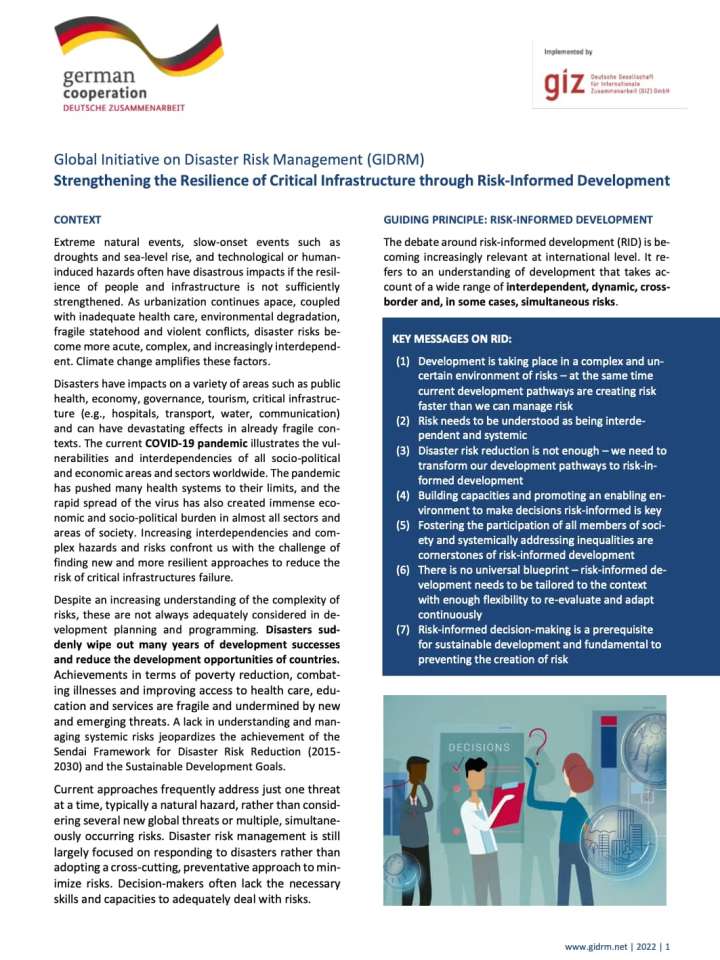Global Initiative on Disaster Risk Management (GIDRM): Strengthening the resilience of critical infrastructure through risk-informed development
Extreme natural events, slow-onset events such as droughts and sea-level rise, and technological or human-induced hazards often have disastrous impacts if the resilience of people and infrastructure is not sufficiently strengthened. As urbanization continues apace, coupled with inadequate health care, environmental degradation, fragile statehood and violent conflicts, disaster risks become more acute, complex, and increasingly interdependent. Climate change amplifies these factors.
Key messages on risk-informed development (RID):
- Development is taking place in a complex and uncertain environment of risks – at the same time current development pathways are creating risk faster than we can manage risk
- Risk needs to be understood as being interdependent and systemic
- Disaster risk reduction is not enough – we need to transform our development pathways to risk-informed development
- Building capacities and promoting an enabling environment to make decisions risk-informed is key
- Fostering the participation of all members of society and systemically addressing inequalities are cornerstones of risk-informed development
Explore further
